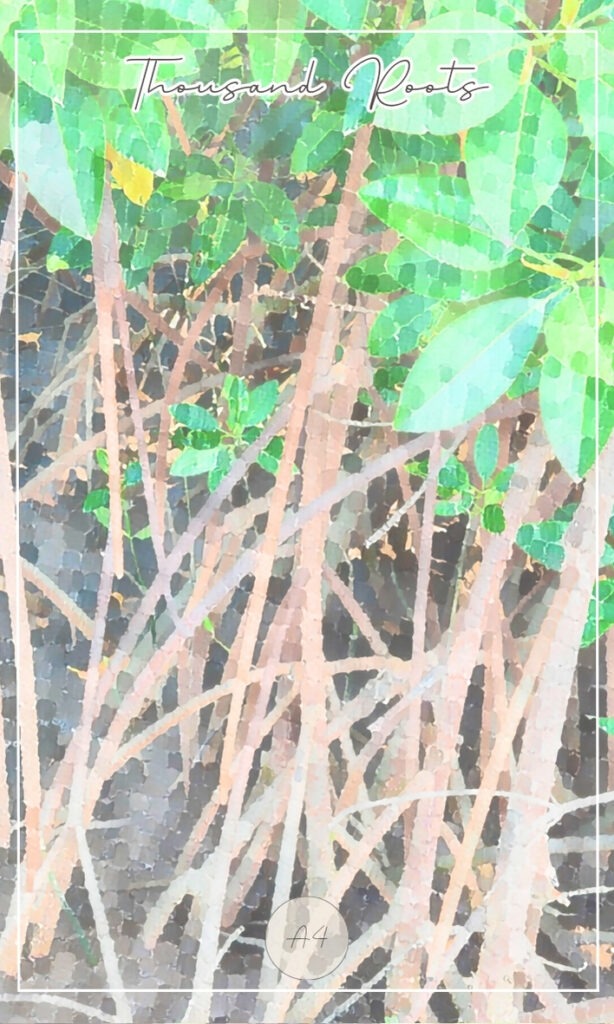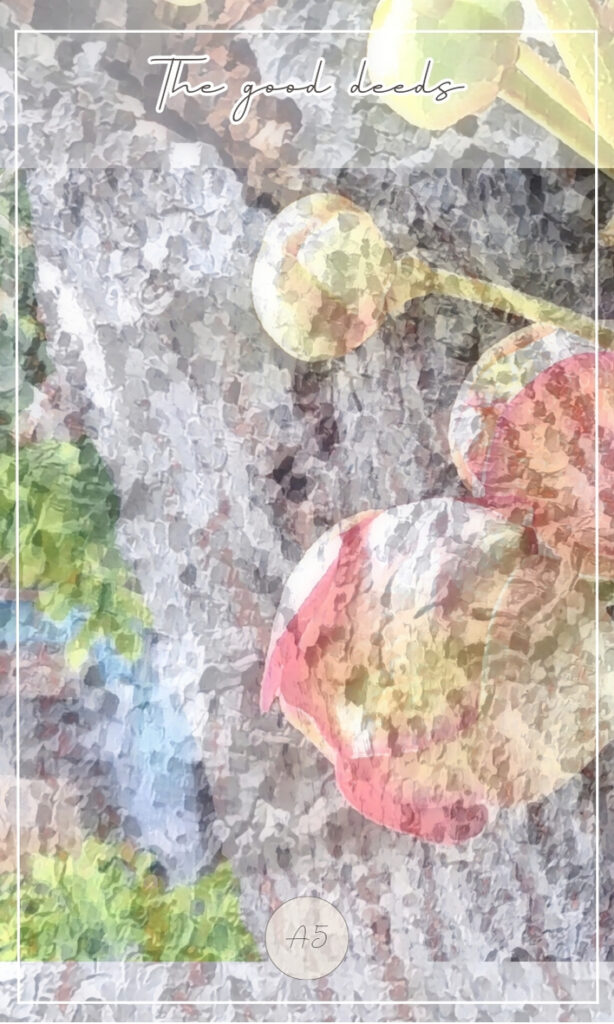
Dr. Suthasinee Sangkhum





Abstract :
The Buddhist Psychology Counselling Card Deck integrates Buddhist teaching, Buddhist psychology counselling with design thinking, photography and digital art to provide a tool for personal growth and psychological well-being in the age of declining faith in religious among the newer generation. This design for social innovation project uses mixed media to create an interactive experience that encourages users to explore key Buddhist concepts such as mindfulness, compassion, and the Four Noble Truths. Through a combination of photography, pointillism, and digital silhouette techniques, each card serves as both a metaphor and a tool for internal reflection, facilitating personal and communal dialogue. The deck is designed to cultivate self-awareness, emotional resilience, calm stage to contemplate the challenges in life and respond with mindful decision. The ultimate aim is to cultivate wisdom and human flourishing, aligning Buddhist teaching teachings with contemporary life challenges through a creative and accessible medium.
Objectives :
The primary objective of the Buddhist Psychology Counselling Card Deck is to facilitate human flourishing through a structured exploration of Buddhist teachings and science of happiness. Specific aims include:
- To Provide Insight: Enable users to gain profound insights into the nature of suffering, pathways to emotional resilience, and the cultivation of compassion through interactive, thoughtfully designed cards.
- To Foster Mindfulness: Utilize photography metaphors within the cards to promote mindfulness and presence, encouraging users to engage deeply with the present moment and their inner experiences.
- To Integrate Traditional and Modern Knowledge: Merge scientific Buddhist body of knowledge with contemporary design techniques to create a tool that is both informative and engaging for modern users.
Conceptual Framework :
The Buddhist Psychology Counselling Card Deck is designed as a tool to enhance well-being and wisdom cultivation within contemporary society. It merges sociological insights, Buddhist philosophy, and design thinking principles to create an accessible, engaging, and therapeutically potent experience. This project utilizes mixed media approach, combining photography with digital pointillism and silhouette techniques, to illustrate and provoke deeper introspection into Buddhist teachings and personal growth.
Conceptual Framework:
- Core Disciplines:
- Sociology: Analysis of social contexts influencing personal growth through the card usage.
- Design Thinking: A human-centered approach to create user-friendly and impactful cards.
- Buddhist Philosophy: Guided by mindfulness, compassion, and the Four Noble Truths to frame the card content.
- Positive Design Principles:
- Well-being Focus: Cards designed to evoke positive emotions, self-awareness, and purpose.
- Empowerment: Tools and practices to navigate life’s challenges effectively.
- Arts and Design as Tools and Metaphors:
- Technique: Utilization of mixed media including digital art (pointillism) and photography.
- Purpose: Facilitate reflection and dialogue, deepening understanding of Buddhist concepts.
Process / Methodology :
Process:
- Card Design and Development:
- Creation of a 3-set card series focusing on different stages of Buddhist counselling: Rapport Building, Suffering Contemplation, and Magga (Right Thoughts and Actions).
- Selection and photography of significant Buddhist symbols and concepts.
- Digital transformation of photos to pointillism style to symbolize the interconnectedness of life, complemented by silhouettes to focus user contemplation.
- Technical Execution:
- Conversion of images into digital formats and stylization.
- Integration into a card design template and final adjustments for aesthetics and readability.
- Uploading of the final designs to a cloud platform for accessibility.
- Interactive Platform Development:
- Coding and creation of an online interface for card drawing and user interaction.
- Development of a comprehensive manual for card usage
Techniques and Materials :
The card deck utilizes mixed media techniques combining traditional photography with digital tools:
- Photography: Images capturing symbolic Buddhist elements.
- Digital tools: Application of pointillism filters and silhouette creation to abstract and deepen the visual impact.
- Graphic Design: Layout and typography incorporated to facilitate ease of use and engagement.
- Software Development: Use of coding languages (HTML) to create an interactive online platform where users can explore the card deck digitally.
Result / Conclusion :
The final output of this project is a comprehensive Buddhist Psychology Counselling Card Deck, meticulously designed to facilitate two key stages of Buddhist counseling. The deck comprises 28 digital cards, systematically categorized into three groups to support specific facets of the counseling process. Each card is crafted to guide users through stages of rapport building, suffering analysis, and positive action, with content deeply rooted in Buddhist teachings. This structured approach not only aids individuals in navigating their personal challenges but also promotes substantial personal growth and well-being.
Group 1: Rapport Building and Mindfulness (12 Cards): This initial set of cards is aimed at creating a supportive, warm, and trustworthy atmosphere for counseling. It includes mindfulness-friendly conversation prompts that encourage open dialogue and deeper connections. These prompts are designed to evoke a sense of calm, motivation, and readiness, preparing the client mentally and emotionally for insightful counseling sessions. The focus here is on cultivating a ‘kusala’ state of mind—free from greed, anger, and delusion—thus fostering mindfulness and a focused engagement for the dialogue.
Group 2: Understanding Suffering (6 Cards): The second group facilitates a deep dialogue about personal suffering. Each card addresses grouped types of suffering described in Buddhist teaching, helping both counselor and client explore the nature, causes, and resolutions of suffering. Through discussions based on the Four Noble Truths and the Five Aggregates, these cards enable a profound understanding of how defilements contribute to life’s challenges, guiding users towards clarity and relief.
Group 3: Cultivating Positive Qualities and Taking Action (10 Cards): The final group of cards is designed to inspire actionable insights in alignment with the ‘Trisikkha’ (three trainings: ethics, concentration, and wisdom). These cards encourage users to make mindful decisions, promoting the adoption of ‘right view’, ‘right speech’, and ‘right action’. By leveraging wisdom to confront challenges with strength and resilience, these prompts help cultivate positive, meritorious qualities essential for personal development and spiritual growth.
The deck is now fully digital, hosted online for easy access and interactive use, making it a timely tool for individual introspection as well as guided counseling sessions. This integration of traditional Buddhist philosophy with modern digital tools exemplifies an accessible approach that resonates well with newer generations, enhancing the applicability of ancient wisdom in contemporary therapy practices.
References :
Desmet, P. M. A., & Pohlmeyer, A. E. (2013). Positive design: An introduction to design for subjective well-being. International Journal of Design, 7(3), 5-19.
Department of Psychology, Chulalongkorn University. (n.d.). Buddhist Counseling. Department of Psychology, Chulalongkorn University. https://www.psy.chula.ac.th/th/feature-articles/buddhist-counseling
Gales, P. A. (2014, July 2). Photography as metaphor for how you look at life. Peter Anthony Gales [Blog post]. https://peteranthonygales.com/2014/07/02/photography-as-metaphor-for-how-you-look-at-life/
Jongrak, D. (2013). Chapter 14: Buddhist Counseling and Psychotherapy / Basic Theories of Counseling and Psychotherapy. In D. Jongrak (Ed.), Theories of Counseling and Psychotherapy (pp. 309-340). Bangkok: Thai-Japanese Technology Promotion Association.
Laroche, H. (2020). Observation as photography: A metaphor. M@n@gement, 23, 79-99. https://www.cairn.info/revue–2020-3-page-79.htm.
Payutto, P. A. (n.d.). Buddhadhamma. https://buddhadhamma.github.io/titlepage.html
Sangkhum, S. (2023). Secular Buddhism for Public Affairs [Doctoral dissertation, Rangsit University, Thailand, Social Innovation College].
วิชชุดา ฐิติโชติรัตนา, ว. (2562). คู่มือแนวปฏิบัติการปรึกษาแนวพุทธจิตวิทยาบูรณาการของพระสงฆ์ที่มีบทบาทให้การปรึกษา [Manual of Integrated Buddhist Psychology Counseling Practices for Monks in Counseling Roles]. กรุงเทพฯ: ห้างหุ้นส่วนจำกัดเชนปริ้นติ้ง.
ประเวศ วะสี (2555). จิตตภาวนากับการเปลี่ยนแปลงขั้นพื้นฐาน. ใน การประชุมวิชาการประจำปีจิตตปัญญาศึกษาครั้งที่ 4. กรุงเทพฯ: โรงแรมมิราเคิลแกรนด์คอนเวนชั่น. จัดโดยศูนย์จิตตปัญญาศึกษามหาวิทยาลัยมหิดลร่วมกับสถาบันอาศรมศิลป์และสำนักงานกองทุนสนับสนุนการสร้างเสริมสุขภาพ.